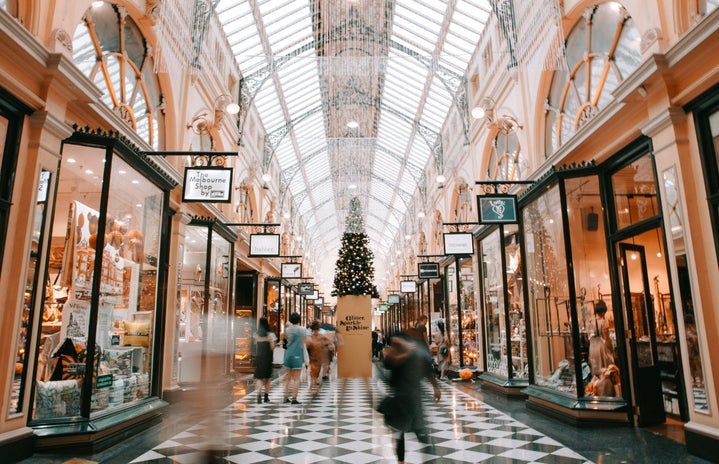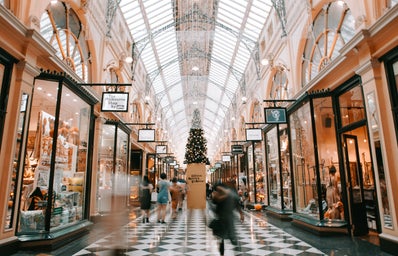I am a child of mass production. I get instant satisfaction from a new purchase, snagging the best deal at the mall, and checking off everything I put on my Christmas list. Many argue that it was the shopping boom of the 1980s that fed into the desires of the American teenager, but I argue that teens of our generation have faced the brunt of the temptation into consumerism. I don’t remember the last time I bought a piece of clothing, shoes, or accessories from seeing a commercial for it. In fact, it would be seen as almost tacky to give in to such an obnoxious-seeming form of marketing. Instead, those I grew up with and those younger than me have the influencer to blame for their empty pockets.
The rise of the “beauty guru” in the early 2010s made over shopping seem like an achievement. I was glued to the computer waiting to see what my Youtube fashion idol was going to pull out of her neon Bath and Body Works or Victoria’s Secret bag next. Black Friday sounded like a pilgrimage unmatched to any other high. One could buy three shirts for the price of one and these self-made internet fashion celebrities got me thinking, “what a deal.” In my middle school days, I must have purchased hundreds of dollars worth of beauty products and cheap, trendy tops from H&M and Forever 21, of my hard-earned babysitting money. I had no concept of saving because to me, this was saving. Getting something for half off or something “soooo cute” that was affordable seemed like what everyone was doing. I had no clue what this over shopping was doing to my wallet, the environment, or the wellbeing of the people employed in the near sweatshop conditions in the factories of these fast-fashion brands.
My mind was so malleable back then, and now I see today’s young teens experiencing similar manipulation. However, the influencers have been replaced or have evolved with their growing success, and that has caused the desires of viewers to heighten. The beauty stars on Youtube and Instagram I used to keep up with were normally close to my age and bought affordable “teenager” type things because at this point sponsorships and advertisement revenue wasn’t as present. Instead, now it seems like every famous Instagrammer, TikToker, etc is sporting trends that aren’t so accessible. When celebrities like Paris Hilton and Beyonce are inexpensive clothes, we register that as an unattainable lifestyle because they’re rich and famous. Teens today may not register internet influencers the same way because they seem like people with accounts and posts just like they do. Therefore, it wouldn’t be irrational for a young teen to beg for the Gucci slides, Cartier bracelet, or whatever $300 denim trend their favorite internet celeb is wearing. As a result, teens aren’t buying in as much access because they see hauls and are encouraged buy from flash sales, but they are enticed into wearing luxury items themselves. The culture has shifted from “more is more”, to “more expensive is more” and although that may be great for the environment and reducing the quantity of wasteful clothing and accessory purchases, expectations of teens have become adult-like.
I have discussed two dilemmas of consumerism: overshopping and overspending. Instead of promoting products and elaborate lifestyles, influencers must realize that their job position is just that: someone who influences and try to incorporate other lessons in their message. If they can’t do that themselves, because in all honesty product promotion is part of how they make a living, parents should be teaching their children what is really valuable. My mother warned me that I didn’t need to buy so much or get clothing just to look like someone else, so I wish for impressionable teens in the future to also have this mindset ingrained to break the consumerist cycle.



